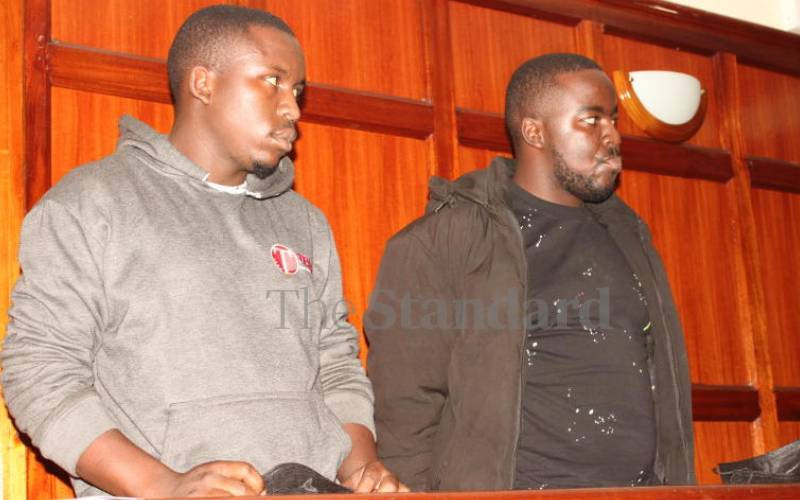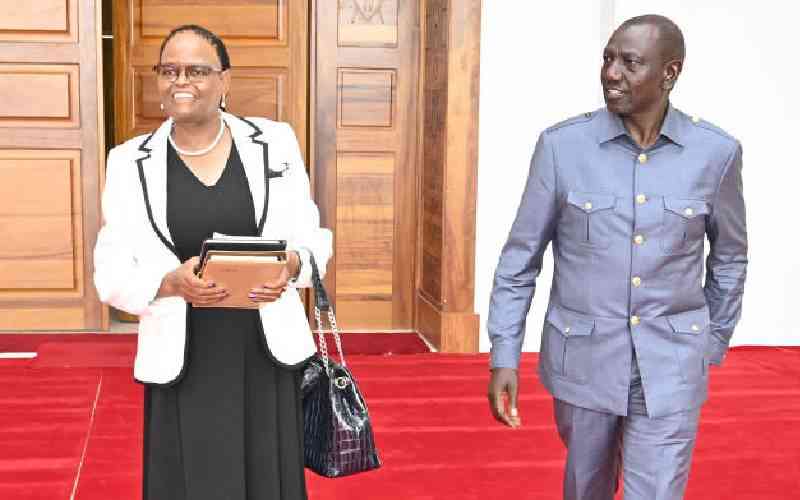The number of criminal cases filed in courts last year rose by 65 per cent compared to 2013, a report has revealed.
The Annual State of the Judiciary and Administration of Justice Report (SoJAR), released by Chief Justice Willy Mutunga last Friday, shows between 2013 and 2014, the courts heard 155,195 criminal cases compared to 94,156 between 2012 and 2013.
It says majority of cases were elated to theft, assault, sexual violations, traffic offenses and forgery.
Experts attribute the surge in crime to poverty, breakdown in social fabric and population growth.
“Our social fabric is broken and we should not think that poverty is the only thing that is causing the rise of criminal acts. The elite are also engaging in the same crimes as the poor; not that they are desperate for survival, but because they want to be better than others,” argues University of Nairobi Sociology Lecturer Octavian Gakuru.
The number of civil cases also rose from 332,352 to 363, 912 over the same period, according to the report released last Friday by Dr Mutunga.
“Although the number of civil cases in the courts is higher than criminal ones, the increase in the latter category signals that focus on resolution of criminal cases is a priority area.
“There is need, therefore, for players in the justice chain to establish what may have contributed to the 65 per cent increase in criminal cases and consequently jointly enhance crime prevention measures,” the report reads.
Of the 155,195 criminal cases, 506 were heard by the Court of Appeal, 15,144 by the High Court and 139,545 by the Magistrates’ Courts.
Social norms
Other criminal cases prosecuted were robbery, murder, offenses against liberty, corruption and economic crimes, children offenses, unlawful assembly and riots, offenses against marriage and domestic obligations.
Sociologists say a breakdown of social norms, change of economic systems and rapid population growth may be contributing to the rise in criminal cases.
Prof Gakuru says rapid population growth had led to many changes and challenges in society.
“A society like ours is undergoing rapid change from a family or structured social network to a highly individualised and impersonal one. Families have broken from extended to nuclear and single parenthood.
“The same is a reflection that we have broken down to individual control and thus the law cannot help anyone. The police cannot be everywhere, and they are not immune to the same issues. It’s a question of society sitting down and looking back to our ideology, which is lost to a large extent,” he says.
Stay informed. Subscribe to our newsletter
He said frustration in families, lack of proper values and increased demands from society hadve had a negative impact on individuals. He added that competing needs in the society were also influencing how individuals act.
“It is an indicator of fundamental changes in the society that were not there in the past. Fundamental values are eroding very fast with the convergence of unemployment, change of income sources and social values.”
Lawyer John Swaka attributed the rise to lack of channels to settle some of the issues reported to the police, subsequently ending before the courts
He is of the view that civil cases only end up in the corridors of justice when mediation and arbitration fail.
“Criminal cases have never been subjected to alternative dispute resolution. Whatever comes to a police station, they are quick to bring it to court and thus we have a high number of cases, some of which end up being acquittals,” he said.
There were 2,607 corruption cases. But Mutunga said the courts had cleared the largest chunk of the cases and only 119 cases were yet to be determined.
“The court’s current caseload is 119 cases and a new strategy to speed up the hearing and determination of the cases is now in operation. This will include hearing matters back-to-back until conclusion as provided for in Section 4 (4) of the Anti-Corruption and Economic Crimes Act, and the prosecution, investigation officers and defence attorneys should take note.
“The courts’ modus operandi will change to eliminate the inordinate long period of time it currently takes to hear and determine cases,” said the CJ.
 The Standard Group Plc is a
multi-media organization with investments in media platforms spanning newspaper
print operations, television, radio broadcasting, digital and online services. The
Standard Group is recognized as a leading multi-media house in Kenya with a key
influence in matters of national and international interest.
The Standard Group Plc is a
multi-media organization with investments in media platforms spanning newspaper
print operations, television, radio broadcasting, digital and online services. The
Standard Group is recognized as a leading multi-media house in Kenya with a key
influence in matters of national and international interest.
 The Standard Group Plc is a
multi-media organization with investments in media platforms spanning newspaper
print operations, television, radio broadcasting, digital and online services. The
Standard Group is recognized as a leading multi-media house in Kenya with a key
influence in matters of national and international interest.
The Standard Group Plc is a
multi-media organization with investments in media platforms spanning newspaper
print operations, television, radio broadcasting, digital and online services. The
Standard Group is recognized as a leading multi-media house in Kenya with a key
influence in matters of national and international interest.








